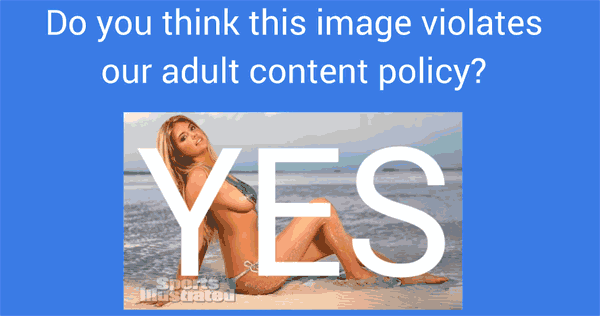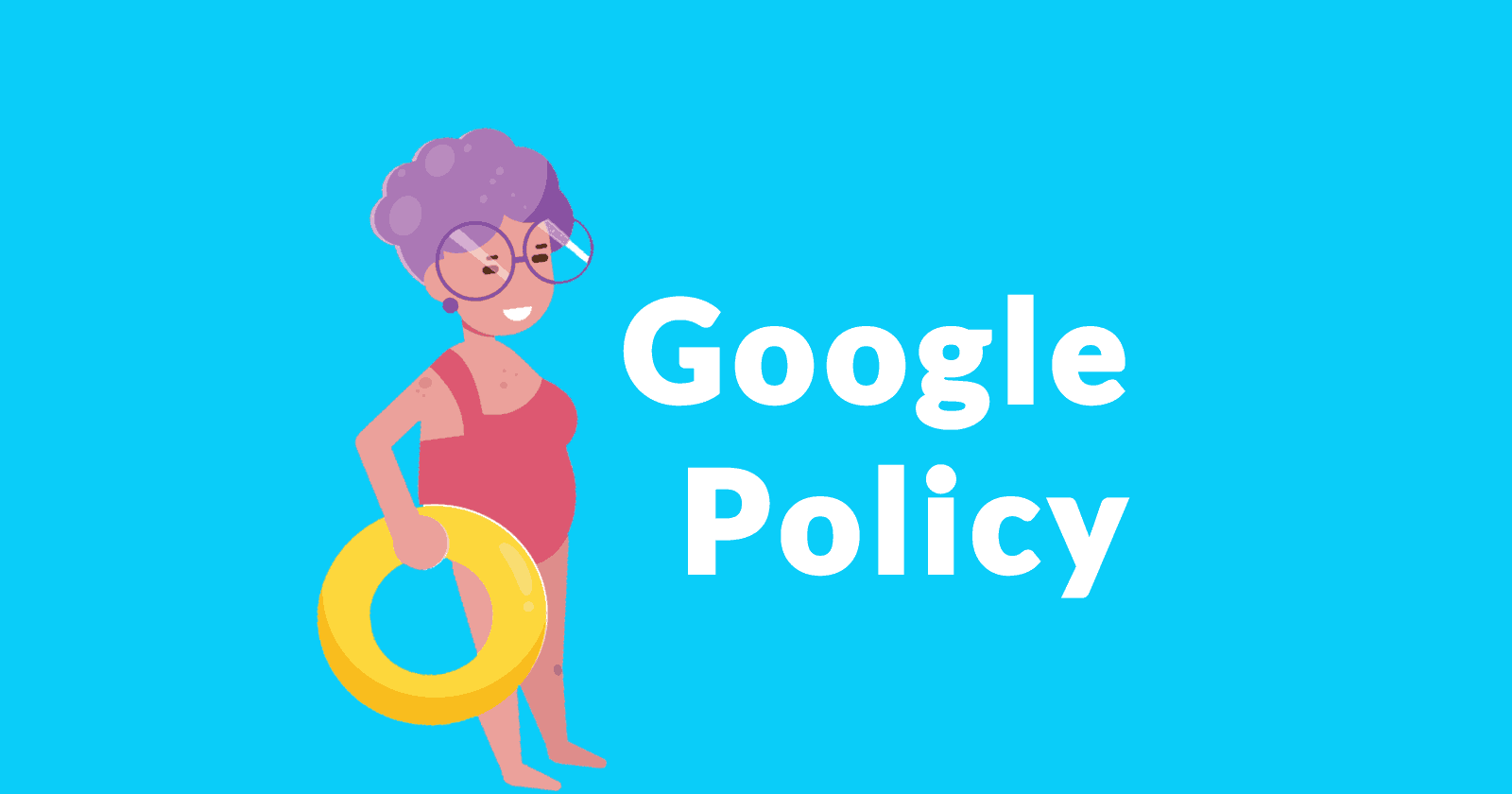A publisher shared frustration with AdSense for what he called a “policy violation” for “sexual content” because of a photo of a mannequin in a swimsuit.
The swimsuit wasn’t even a bikini.
It was a one-piece swimwear, the kind most people’s grandmothers wear to a public beach.
AdSense Begins Displaying Racy Advertising
To make matters worse is that while his page received an AdSense notice about because of a one-piece grandma swimsuit, Google began showing racy ads on his site that zoomed in on sensitive areas of male underwear and women’s lingerie.
“Then today, what AdSense banner do I see on my site? Something from a lingerie website, with 10 models in VERY skimpy lingerie… zoomed in on the b–bs, then it zooms out to zoom in on another one.
…Later, I see another ad for men’s underwear, showing models with HUGE bulges to display their underwear.”
The publisher said it was “double standards” for Google to show excessively racy advertisements on his site while flagging an innocent image as “sexual content.”
The publisher begged Google for fairness, saying:
“Business is tough enough, Google, I really don’t need you breathing down my neck every day on content that would be G-rated anywhere else.”
Google AdSense Adult Content Policy
Google AdSense published a YouTube overview of their adult content policy in which they state:
“Our general rule of thumb is if you wouldn’t want a child to see the content or you would be embarrassed to view the page at work in front of colleagues then you should not put ad code on a page.”
It seems reasonable to believe that a department store image of a mannequin in a grandma one-piece swimsuit would pass that “general rule of thumb.”
Google’s video shows an example of the line between acceptable and unacceptable content:

As you can see in the screenshots above, the image of a model in a two piece bikini is acceptable.
Among the examples of sexual content are the same kinds of content that Google AdSense was showing on the publisher’s website:
“Sexual content
Is content that:
- contains nudity.
- is sexually gratifying, sexually suggestive and/or intended to cause sexual arousal.
Examples: Close-ups of breasts, buttocks, or crotches, sheer or see-through clothing, sexual body parts that are blurred, or censored images of men or women posing and/or undressing in a seductive manner”
 John Brown, Head of Publisher Policy Communications discusses Google’s policy on what kinds of content can get flagged for being adult and lose advertising revenue.
John Brown, Head of Publisher Policy Communications discusses Google’s policy on what kinds of content can get flagged for being adult and lose advertising revenue.Google Responds
John Brown, Head of Publisher Policy Communications at Google responded to the publisher.
He first corrected the publisher regarding the claim of a policy violation.
John explained that the publisher was not flagged for a policy violation.
But rather Google was notifying the publisher of a publisher restriction.
John linked to a support page that highlighted the types of content that can fall into a publisher restriction notification are sexual content and shocking content (gruesome images).
Publisher Did Not Have a Policy Violation
An important fact that came out during this discussion is that the publisher was not in violation of Google’s policies.
But rather, the publisher was benefiting from Google’s better approach of notifying publishers of situations that may result in less advertising revenues.
Brown clarified what was happening:
“Rather than a “policy violation”, Sexual content is a ‘restriction’, which means advertiser demand will likely be less for this type of content: In this case, you were simply given a heads up that you will likely receive less monetization for that category of content, as advertisers have shown less willingness to appear alongside that content.”
What that means is that rather than threaten a publisher with losing their AdSense account, what Google is trying to do is communicate that a particular image is creating a situation for the publisher that a page will attract less advertisers.
So what was happening is that the notification that Google sent to the publisher was misunderstood by the publisher as a “policy violation” which then upset that publisher.
That misunderstanding may not be the fault of the publisher, it could be the way Google communicated the Restriction.
John then addressed the racy advertising AdSense was serving by linking to a support page that discusses several controls that publishers have for blocking unwanted advertising.
Google’s Brown added:
“Additionally, if an ad is particularly offensive, or unsuitable, you can always report the ad, and a team will look at it and determine if there are policy violations for that ad.”
Publisher Response to Google AdSense
The publishers responded by acknowledging that the approach of notification of ad restrictions was preferable to threats of losing their AdSense account.
Another publisher suggested that Google needs to do better:
“Your take away from this thread should be that Google needs to do more, not tell us publishers that we are not doing enough.”
Brown responded by inviting constructive feedback, which is a great approach on the part of Google:
“Okay, tell me what else we can do to help. Constructive ideas and feedback are welcome.”
Further discussion ensued where publishers received more positive advice from Google and publishers shared their concerns about AdSense.
One publisher shared screenshots of spammy ads they had trouble getting rid of.
Takeaway
Google’s John Brown did an excellent job addressing publisher concerns.
This discussion proves that everyone wins when Google and publishers share concerns and constructive criticism.
Google Publisher Restrictions
https://support.google.com/adsense/answer/9335567?hl=en&ref_topic=1261918.
How to Block Ad Categories on AdSense
https://support.google.com/adsense/answer/186376?hl=en
Read the WebmasterWorld discussion here:





